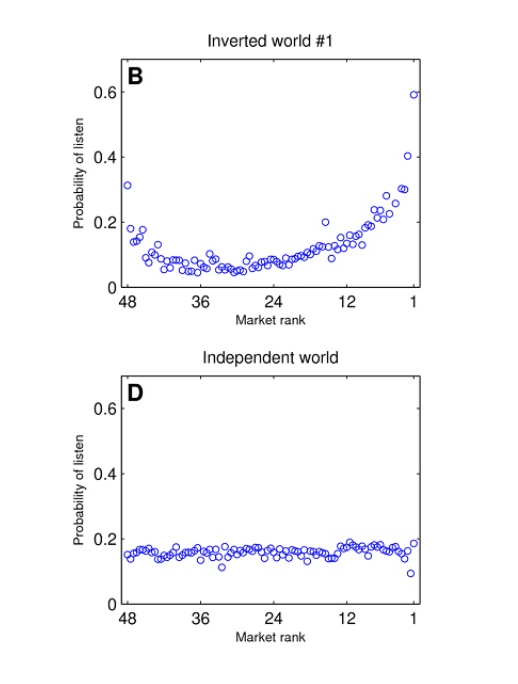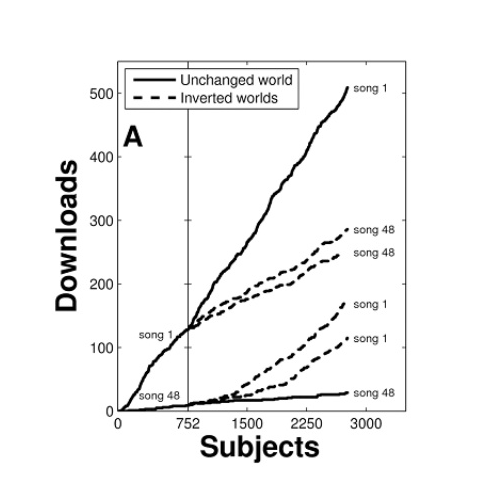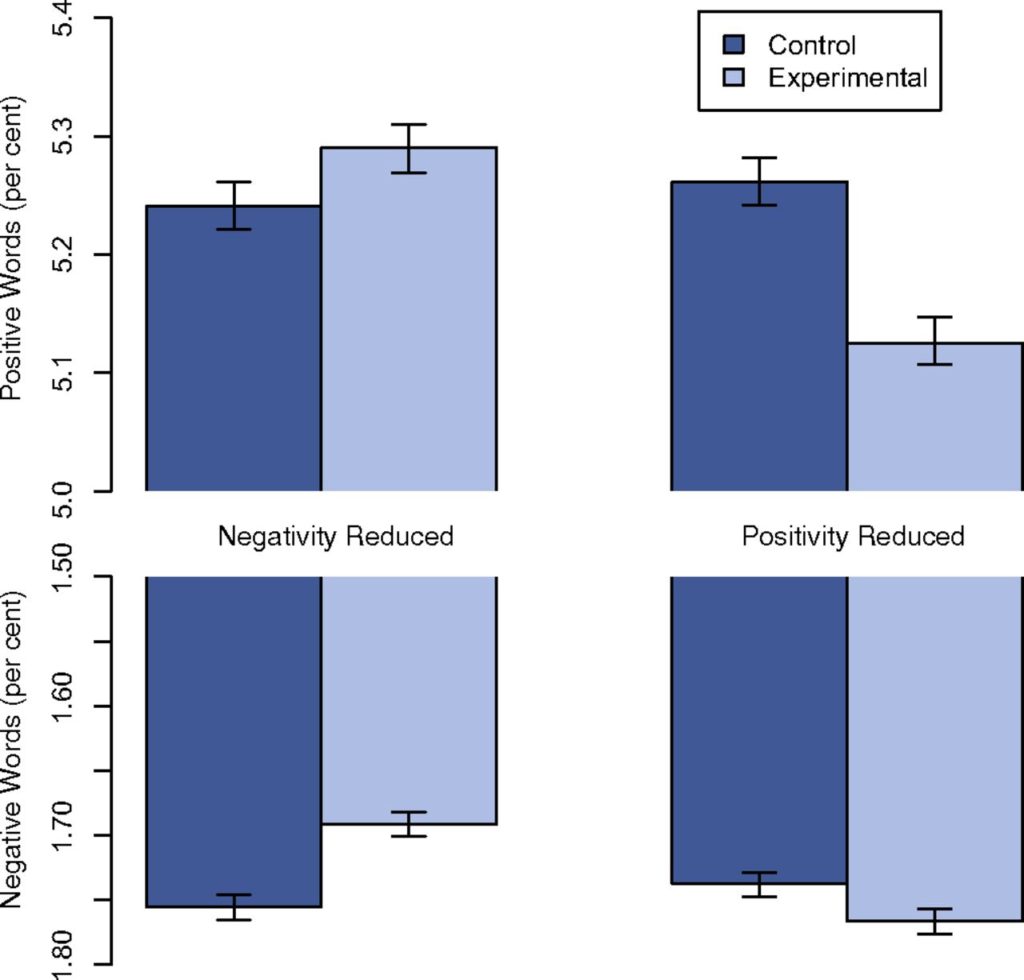Posted first on Jan 2014
So why are we so not unique?
Why don’t we fulfill our rebellious charming unique personalities and run to discover the wonderful gigantic fields of the long tail?
Why do we buy the same T-shirts, tablets or Apps? Why do we go to the same movies and concerts? Why can’t we be more fucking special?
The short answer is that we are all basically conformists. We match our attitudes, believes and behavior to our group norms. It helps us feel belong, a part of the group and it lowers our risk.
Solomon Eliot Asch, a Jewish psychologist who was born in Poland 100 years ago, and lived most of his life in New York, conducted a series of experiments during the 1950’s to explore conformism.
In his most famous experiment he gathered a group of college student to participate in a task – they were shown a card with one line and another card with 3 lines in different lengths and then had to choose which line of the 3 had the same length as the one in the first card. The thing is that except for one student, the rest of the group members were actually actors and they were given specific instructions on how to respond to each trial, in some cases they all gave the same wrong answer and in some they all gave the correct one. The results were clear – The one student who was tested and didn’t know about the play he was part of, was highly influenced by the other members and used to make the same mistakes they did. Even when he knew the answer and thought that the others were wrong he would choose their wrong answer as well.

“If everyone has one, I want one too”
The social influence that makes us pick the same picks like everybody else is also known as Social proof – We assume that the people that surround us know better and have more knowledge about stuff and therefore by imitating what they are doing we believe that we behave correctly.
This may also be referred as “the bandwagon effect” – the probability of any individual to adopt (a new trend, product, ideas) increases with the proportion of those who have already adopted. As more people adopt or believe in something, the others “hop on the bandwagon” regardless of their own beliefs, which they may ignore or override.
Don’t hesitate, Manipulate!
Our conformism can be used and manipulated. For example, the 16th century French poet, Jean Daurat, used to buy tickets to his own plays and give them for free to people, who in return agreed to applause.
When they started clapping their hands, the rest of the audience followed, thinking that their clapping was a signal of the performance’s quality.
Same goes to fake laughter in TV shows. The studios found that even though viewers find it annoying, they perceive sitcoms that use canned laughter as funnier than shows that don’t. Fake laugh tracks are less common today but can still be heard for example in “How I Met Your Mother” and other series. A recent study was done in 2011 by Psychologist Bill Kelley who checked the human brain’s response to humor. His findings were that “We’re much more likely to laugh at something funny in the presence of other people. Hearing others laugh — even if it’s prerecorded — can encourage us to chuckle and enjoy ourselves more”.
We will talk further about manipulating in order to become a short head winner later on…
“Feel what I feel, do what I do, like what I like”
Our conformism also applies when it comes to Likes.
It turns out that if you Like this post on Facebook it would help me get more likes from other people.
On august 2013, the science magazine published the research of Lev Muchnik, Sinan Aral and Sean J. Taylor, who checked how prior ratings such as Likes affect our rating. Their findings were that “positive social influence increased the likelihood of positive ratings by 32% and created accumulating positive herding that increased final ratings by 25% on average”.
As one of the researchers said: “Hype can work and feed on itself as well”. These findings are very interesting as they also shake the foundations of the “wisdom of the crowd” theory. If we are so influenced by other people thoughts and ratings, then the crowd is not really a crowd but a small group of people who spoke first and a big group of people that followed and accepted what the first group said.
This music sucks! I LOVE IT
A very interesting demonstration of this “Hype that can feed on itself” in music was given to us by Salganik, Dodds & Watts in 2006.
In their experiment they created an artificial online “music market”. 14,341 participates, most of them teenagers, were shown a list of 48 unknown songs from unknown bands. Half of them were able to see how many people already downloaded each of the songs (let’s call them “the touchables”), and the other half didn’t get any former information about the songs (“the untouchables”).
Each participant was asked to listen to whatever songs he chooses from the list and then rate it (1-5). They could also download the song to their computer after they had listened to them.
The result was very interesting – the popular songs of the touchables were much more popular than the popular songs of the untouchables and the un-popular songs of the touchables was less popular than the un-popular songs of the untouchables. In other words the early success led to much bigger future success just like a prophecy that fulfills itself. The hits became mega-hits.

The social influence helped the popular songs to become much more popular. The reasons that this, and other similar studies, offered are that people use the popularity of products as a signal of quality and because they are conformists they think that they will benefit from coordinating their listening choices (and also reading and watching) with the choices of others.
But you haven’t heard the interesting stuff yet…
A few years later, in 2008, they released another study.
Once again they invited people to a false “music market” with 48 tracks. Only that this time after gathering rating and downloads data from the first 2,211 participants, they created a new version of the site in which they inverted the popularity order of the songs – the most popular song (based on the first 2,211 participants) which reached 128 downloads was swapped with the less popular song that had reached only 9 downloads. The second most popular song was swapped with the second less popular and so on.
After introducing the new fake version of the site to more participants and gathering their data the results were amazing.
The fake number one track (which was apparently not very good based on the real downloads of the first group of participants) gained many downloads while the fake number 48 (which was actually the most popular among the first group) did quite badly.

If you are happy, I am happy
Social influence doesn’t stop at opinions. It goes down to emotions as well.
In June 2014 Jamie E. Guillory and Jeffrey T. Hancock from Cornell university, together with Facebook data science team member Adam D. I. Kramer, released a study called: Experimental evidence of massive-scale emotional contagion through social networks.
Emotional contagion is the phenomenon of having one person’s emotions and related behaviors directly trigger similar emotions and behaviors in other people and it has been studied for many years.
The new study wanted to examine the effect of Social media on Emotional contagion.
The massive experiment (almost 700 thousands Facebook users) revealed that emotional states can be transferred to others via emotional contagion, leading people to experience the same emotions without their awareness.
The experiment that took place during one week in January 2012 manipulated the extent to which Facebook users were exposed to emotional expressions in their News Feed – They reduced the positive posts in the feeds of people in one and for the other group they reduced the negative posts.
The results showed emotional contagion. People who had positive content reduced in their News Feed, posted more negative status updates and People who had negative posts reduced posted more positive status updates.
The study got a lot of criticism from lawyers, internet activists and politicians. “They are manipulating material from people’s personal lives and I am worried about the ability of Facebook and others to manipulate people’s thoughts in politics or other areas. If people are being thought-controlled in this kind of way there needs to be protection and they at least need to know about it.” said Jim Sheridan, a member of the Commons media select committee in the UK.
Clay Johnson, the co-founder of Blue State Digital, the firm that built and managed Barack Obama’s online campaign for the presidency in 2008 also referred to the experiment asking: “”Could the CIA incite revolution in Sudan by pressuring Facebook to promote discontent? Should that be legal? Could Mark Zuckerberg swing an election by promoting Upworthy [a website aggregating viral content] posts two weeks beforehand? Should that be legal?”
We are all special!
At least that is what we tell our kids.
Most of us are basically conformists, we don’t have our own opinions on most things and even when we do, we tend to put them aside and follow the herd.
Should it make us feel bad about ourselves?
Well, it’s up to you.
Oh, no it isn’t…
Ask somebody


